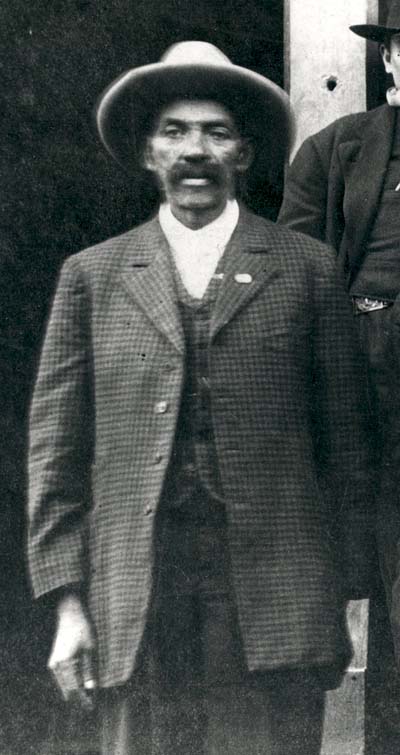Bass Reeves
Bass Reeves was born in Crawford County, Arkansas in 1838. He and his family were the slaves of William Steele Reeves, an Arkansas state legislator. When Bass was 8 years old William Reeves moved to Grayson County, Texas, joining the Confederate Army. He moved all of his slaves with him, and here Bass became the servant of Williams son, George Reeves.
Sometime during the Civil War, Bass severely beat up George and fled North to what was then Indian Territory. Here he lived as a fugitive slave amongst the Cherokee, Creeks and Seminoles. He became immersed in the culture of the Native Americans, and learned their languages.
Officially becoming a free man after the Emancipation Proclamation in 1863, Bass returned to Arkansas, settling in Van Buren. He began working as farmer and stockman. He married Nellie Jennie and fathered 10 children with her.
In 1875 Issac Parker, a federal judge, appointed James Fagan as U.S. marshal, instructing him to hire 200 deputy U.S. marshals. He’d heard about Bass and his ability to speak several indian languages and his familiarity with the territory, he recruited Bass making him the first black deputy marshal west of the Mississippi River.
He was assigned the western district of Arkansas, which included Indian territory. He served the area for 32 years, becoming one of the most successful deputies that James Fagan had recruited. He was a marksman with a rifle and pistol, and he’d developed superior detective skills. He tracked outlaw Tom Story for five years between 1884 and 1889, killing him in a gunfight.
Since he was illiterate Reeves often memorized warrants that were read to him by the federal judges or other court officials. Reeves was also skilled at disguising himself and taking on other aliases to assist his apprehension of criminals.
Bass brought in some of the most dangerous criminals of the time, never being wounded. In the defense of his own life he'd killed 14 men, and arrested more than 3,000 including his own son who was charged and convicted of killing his wife.
In 1907 when Oklaholma became a state and no longer Indian territory, Bass became a policeman for the Muskogee Police Department at age 69. He became ill and retired 2 years later, passing away in 1910.
Bass is the inspiration for the Lone Ranger character. In Black Gun, Silver Star: The Life and Legend of Frontier Marshal Bass Reeves Art Burton explains in detail the paralleling similarities between Bass and the fictional character, the wearing disguises, having a Native American partner, riding a white and grey horse, giving out silver keepsakes, possessing legendary marksmanship and horsemanship, etc.
loooooooooool
B A S S.




